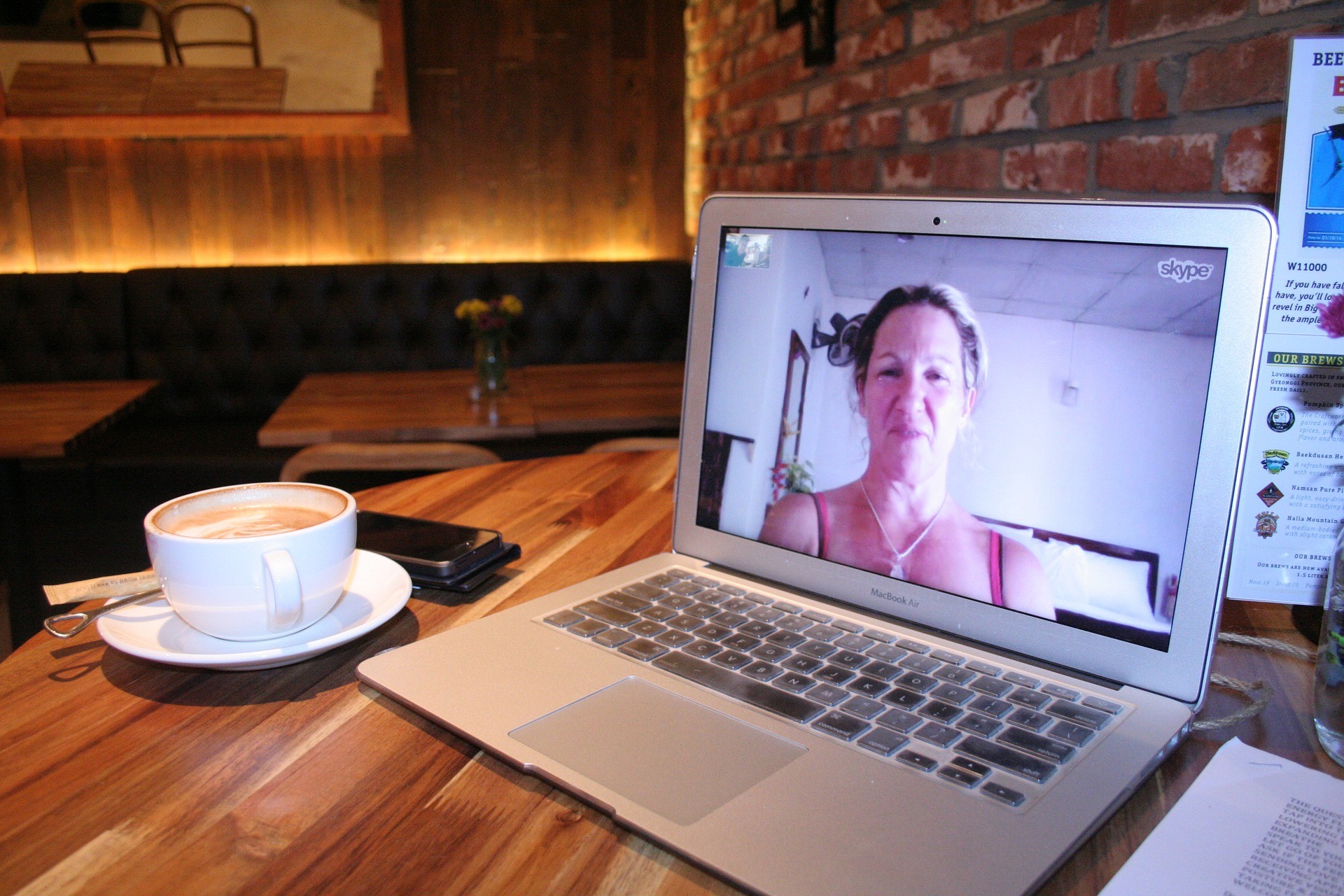How to land any volunteering job: my ten top tips
Volunteering on the go is one of the best ways to maintain a nomadic lifestyle: you won’t be earning anything, but you will be saving an awful lot of money, be that on accommodation, food, or transport. I’ve done a number of gigs like this over the past few years, and have gained so many life skills from each. However, with more and more people wanting to travel the world, I’ve noticed that competition for these roles has increased quite a bit. Today, then, I’m going be going through my ten top tips for making your application stand out, so that you can land any volunteering job you want, in your own country or abroad.

Read the job description and show that you have
Applying for volunteering posts is a time-consuming process, and you’ll probably want to take shortcuts whenever possible, but I cannot stress how important it is not to copy and paste applications. Employers can usually see right past this, and you’ll lower your chances of success quite drastically.
Elevate yourself above your rivals by taking the time to read job descriptions, then demonstrating, in your motivation letter, that you have done so. ‘I notice that you are looking for…’ is probably the best sentence opener you can use to showcase your extra efforts. All that’s left is to explain why you’re the missing puzzle piece!
Show genuine interest in the cause
Along with this, do some research about the company you’re going to be working for. They will likely want volunteers with a genuine interest in the cause, so let them know that you’re well-informed about – and approve of – their projects and general ethos. If part of your job is going to be to fundraise, make sure to explain why you're so keen to support this particular enterprise, and how you're going to encourage others to make financial contributions.
Furthermore, if you’re applying for gigs on a website like Workaway (my favourite of the ones I’ve used), you can also talk about why this platform, in particular, appeals to you. Perhaps it’s their emphasis on cultural exchange, or their promotion of sustainable farming. Including details like this will show potential hosts that your motivations are sound, and that you have the same aspirations as them.

Talk about your professional experience
Another thing that will immediately set certain candidates apart from the rest is professional experience, especially if it is relevant to the post being advertised. If you’re applying for a teaching position, by all means mention that one-off tutoring job you did five years ago: even the tiniest bit of involvement in the appropriate field could make all the difference.
If you’ve worked a lot in the past, but haven’t done anything that’s closely connected to the position you’re applying for, my advice would be to include said experience in your CV, but leave it out of any cover letters. Aimlessly citing all the jobs you’ve ever had won’t impress anyone, and, if anything, it will make it seem as though you’re clutching at straws to make up for a lack of other assets. If you’re really keen to show off your less relevant professional experience, however, I've explained in the section below how to do so effectively.
Finally, if you’ve yet to enter the world of work, think about aspects of your personal life that could enhance your application. I volunteered as an au pair last year, and although I had done quite a bit of babysitting before that, I also decided to mention, in my various cover letters, that I had a much younger brother and sister. Thanks to this small bonus detail, I got positive responses from just about every family I wrote to!

Highlight your skills and personal qualities
It’s also worth setting aside a few sentences to talk about your skills and personal qualities. Again, keep it relevant: being great at tennis probably won’t make you any more suitable for a job in a dog shelter than your average Joe. Having said that, it’s always a good idea to think outside the box a bit. If, for example, you’re a practised film-maker, you could volunteer to make a video about the company you’re working for: they’ll be keen to attain online recognition, and probably won’t have received such an offer from any other candidates.
In terms of personal qualities, try to avoid rattling off long lists without explaining things further. If you think you work well with other people, give examples from your past to prove your point. This is also the place where you can mention work experience that isn’t directly relevant to the gig you’re signing up for. Perhaps these former jobs taught you patience, or maybe you had to do some public speaking during your time there. Either way, if you can find a way to slot these things into your application, by all means go for it.

Suggest a Skype interview
It’s all very well saying that you’re this, this, and this, but how can you increase your credibility? In my opinion, there’s no better way for employers to gauge what their applicants are like than by speaking with them face-to-face: they can’t, in these circumstances, hide behind their words, and they’ll have to answer questions on the spot. It is, then, in your best interests to suggest a meeting over Skype or Facetime in your application letter. You’ll seem much more confident and trustworthy if you do this, something which is particularly important if you’re going to be lodging with, or looking after the children of, your interviewer.

Include a photograph of yourself
If you’re really not a call kind of person, make sure, at the very least, to include a photograph of yourself. Make an educated guess about what sort of picture would be most appropriate. Would the company you’re applying for prefer to see a professional portrait, or a snapshot of you halfway up a mountain, pursuing your wildest dreams? Whatever you end up deciding, employers will be glad to put a face to a name (although, of course, they should never judge a book by its cover!).
This point is particularly important if you’re applying for jobs through a website. Most will encourage you to add a photo to your profile, and not doing so may make it seem as if you’ve got something to hide.
List some referees
Another great way to strengthen your application is to list a couple of referees. Doing so is essentially letting your assessors know that you’ve worked well for past employers, and that you're sure they'll have good things to say about you. In addition, since these people won't be hindered by the fear of seeming arrogant, they'll probably praise you a lot more than you've dared to praise yourself.

Be formal
In general, it’s a good idea to maintain a formal tone when writing any sort of cover letter. Of course, don’t go way over the top with this (it can seem quite contrived if you do), but make sure to keep things professional, and try to avoid using slang or emojis! On top of this, make sure that everything you submit is well-formatted: run it through a spell-checker, or ask a friend to read through it for you.
Be flexible with your dates
One of the biggest problems I had, when looking for volunteering placements last summer, was finding one which I could fit into my schedule. Competition will be greatest during the school holidays, so if you can, try to arrange your trips for a different time of the year. If this is not possible, make sure to give companies a bit of leeway (unless, of course, the programme you want to be part of has fixed dates). Even just offering one or two days on either side of your ideal time frame could make all the difference.

Be persistent
Along with this, be persistent! Last summer, I found my dream gig – working in a hostel in Bordeaux – but when I first applied, the reply was along the lines of ‘we like your profile but are not in need of volunteers at the moment’. However, since I'm one of those people who gets very invested in these sorts of things, I decided I wasn’t going to admit defeat just yet. I checked the availability section of the hostel’s page every day, and, to my great relief, it eventually switched from red (no spaces) to green! I wrote immediately, asking to fill the vacancy, and they invited me to volunteer for a month in September. Good things come to those who wait, my friends!
Over to you
So there we have it: my ten top tips for landing any volunteering job! I’ve given all my best advice, but now it’s down to you to write your application. If you would like someone to read through your final draft, please do drop me a private message, and I will very happily do so. Have a fantastic summer, if you do go out and do some volunteering, and be proud of yourself for helping to make the world a better place!
Photo gallery
Content available in other languages
Want to have your own Erasmus blog?
If you are experiencing living abroad, you're an avid traveller or want to promote the city where you live... create your own blog and share your adventures!
I want to create my Erasmus blog! →










Comments (0 comments)